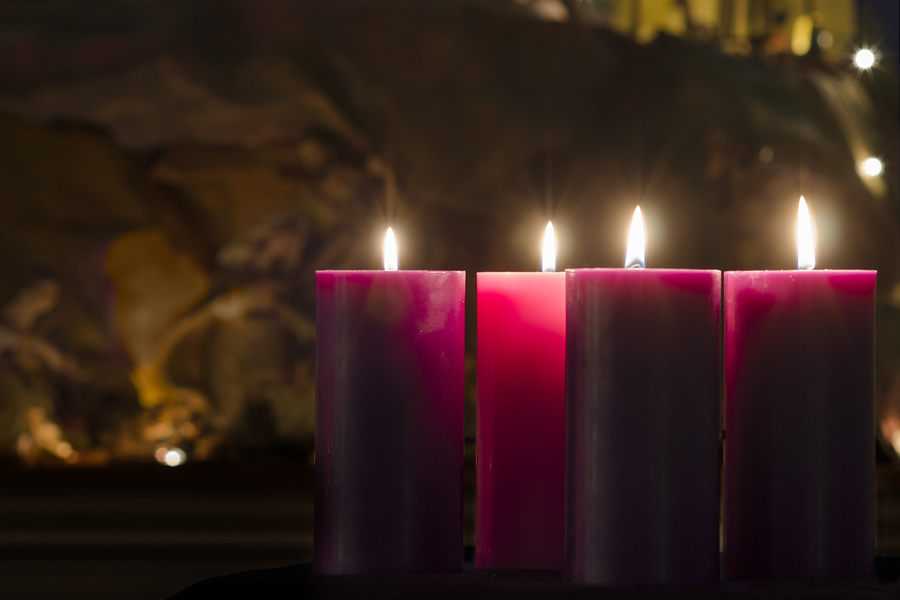
Virgin Mary: Our Lady and the Oppositions Against her: Conclusion
by Fr. Tony Okolo C.S.Sp., V.F. | 12/22/2024 | Weekly ReflectionBeloved Parishioners,
Last week I started a reflection on Our Lady and Opposition against her which I promised to conclude this week. As mentioned in the opening paragraphs I am motivated to share this reflection during this season of Advent when we await in joyful hope for the birth of Jesus by Our Blessed Mother Mary.
It is strange on how many Christian churches share in the joy of the birth of Jesus but would not want to recognize the role of Mary in the history of our salvation. So, the reflection is meant to help us understand that this opposition has a long history at the inception of the Church.
Further, during the Protestant Reformation which began on October 31, 1517, when Martin Luther famously posted his Ninety-Five Theses on the door of the Wittenberg Castle Church and which spanned through the 16th Century and beyond, many reformers critiqued the Catholic veneration of Mary, leading to a denigration of her role in Christian faith. They rejected the idea of Mary as a mediatrix or intercessor, arguing that Christ is the sole mediator between God and humanity, and they further contested that doctrines such as the Immaculate Conception and perpetual virginity were excessive and unfounded. Accordingly, at the Council of Trent (1545-1563) which was a pivotal ecumenical council of the Roman Catholic Church that responded to the Protestant Reformation, the Church highlighted that both Scripture and Sacred Tradition are essential for understanding Mary's role, thus supporting doctrines like her Immaculate Conception and Assumption based on biblical foundations and Church teachings; the Church upheld Mary’s role as a mediatrix of grace, emphasizing that her intercession does not replace Christ’s unique mediatorship but complements it; and finally the Church struck a distinction between veneration (hyperdulia) given to Mary and worship (latria) given to God, clarifying that while Mary is honored, only God is worshipped, thus addressing concerns about idolatry.
Consequently, we ought to point out and remind ourselves of the Church’s teachings on Mary as a means of reinforcing our Marian devotion and honor due to her. The Catechism of the Catholic Church (CCC) affirms that while we honor Mary through veneration, we solemnly affirm that worship is due to God alone (CCC 971); the Church teaches that Mary is called Theotokos, meaning that she is the mother of Jesus Christ, who is both God and man (CCC 495-507). The Catechism teaches that Mary was conceived without original sin, prepared by God to be the mother of His Son, a doctrine known as Immaculate Conception (CCC 491-492); we celebrate every December 8th but this year we celebrated it on the 9th because December 8th fell on a Sunday. The Church reiterates that Mary is acknowledged as remaining a virgin before, during, and after the birth of Christ, signifying her complete dedication to God, a doctrine known as Perpetual Virginity (CCC 499). The Church believes that Mary was assumed body and soul into heaven, reflecting her special status in the divine plan (CCC 966); finally, Mary is seen as a mediatrix of grace, interceding for believers and leading them to her Son (CCC 969).
In conclusion, as we reverently honor and pray through Mary who was present with the apostles in prayer following Jesus' ascension (Acts 1:14), let us remember a solemn but important advice Mary gave us in John 2:5 when she instructed the servants at the Wedding at Cana and encouraged them to follow Jesus’ commands. Mary said: "Do whatever he tells you" (John 2:5). This injunction reflects Mary's faith in Jesus’ authority and serves as an invitation to us to trust in Jesus. Mary wants us to do all the things Jesus has taught us about our relationships with other people, about our love for God and faithfulness to the sacrament, and about our quest for heaven. May Our Mother Mary never cease to intercede for us all, Amen. May God bless us as we await the birth of His Son. Amen
BACK TO LIST